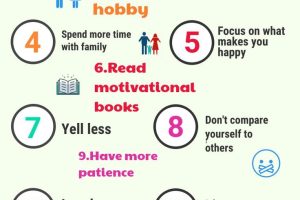Happy Living: How to Stay Healthy and Positive

Understanding the Importance of Happy Living
In today’s fast-paced world, the pursuit of happiness often takes a backseat to daily responsibilities and pressures. However, understanding the importance of happy living can serve as a guiding light. Happiness isn’t just an emotion; it’s a lifestyle choice that reflects in every aspect of our lives. Imagine starting each day with a smile, filled with gratitude and optimism. Personal experiences reveal that when individuals prioritize happiness, they often find themselves more resilient in the face of challenges. For instance, a friend who practiced gratitude journaling reported feeling lighter and more positive, even on tough days.
- Happy Living: How to Stay Healthy and Positive
- Understanding the Importance of Happy Living
- Benefits of a Healthy and Positive Lifestyle
- Physical Well-Being
- Importance of Regular Exercise
- Eating a Balanced Diet
- Mental Health
- Practicing Mindfulness and Meditation
- Managing Stress and Anxiety
- Social Connections
- Building Strong Relationships
- Engaging in Positive Social Interactions
- Work-Life Balance
- Setting Boundaries and Prioritizing Self-Care
- Finding Joy and Fulfillment in Your Career
- Gratitude and Positivity
- Cultivating a Grateful Mindset
- Practicing Positive Self-Talk
- Hobbies and Leisure Activities
- Pursuing Interests and Passions
- Taking Time for Relaxation and Enjoyment
Benefits of a Healthy and Positive Lifestyle
Embracing a healthy and positive lifestyle brings forth a multitude of benefits. Here are just a few:
- Enhanced Physical Health: Regular exercise and a nutritious diet improve stamina and overall health.
- Improved Mental Clarity: Positive living reduces stress and fosters mental clarity.
- Stronger Relationships: When we radiate positivity, we attract supportive and uplifting social interactions.
- Increased Productivity: A happier mindset correlates with greater motivation and productivity in personal and professional endeavors.
By nurturing happiness in daily life, individuals can experience a profound transformation, leading to a richer, more fulfilling existence.
Physical Well-Being
Importance of Regular Exercise
Transitioning from the understanding of happiness, physical well-being plays a crucial role in maintaining that positive outlook on life. Regular exercise isn’t just about losing weight or bulking up; it’s about enhancing your overall quality of life. Consider the uplifting feeling one gets after a morning jog or a session at the gym. The endorphins generated during physical activity are often referred to as “feel-good hormones” for a reason. A friend of mine shared how her daily yoga practice has not only improved her flexibility but also significantly reduced her anxiety levels. Here are a few compelling reasons to incorporate regular exercise into your routine:
- Boosts Mood: Regular physical activity is linked to reduced symptoms of anxiety and depression.
- Improves Sleep: Exercise can help you fall asleep faster and deepen your sleep.
- Increases Energy: Over time, regular activity strengthens your muscles and improves endurance.
Eating a Balanced Diet
While exercise is vital, it’s equally important to nourish the body with a balanced diet. Food is fuel, and what you put into your body directly impacts your physical and mental health. Imagine enjoying a colorful plate filled with fresh vegetables, lean proteins, and whole grains. Such meals not only sustain energy but also enhance mood and cognitive function. Here’s what you should focus on for a balanced diet:
- Whole Foods: Emphasize fruits, vegetables, nuts, and whole grains.
- Hydration: Don’t forget to drink plenty of water throughout the day.
- Moderation: Treats are okay but should be enjoyed in moderation.
Together, regular exercise and a balanced diet pave the way toward a happier, healthier life, reinforcing the benefits of a positive lifestyle.
Mental Health
Practicing Mindfulness and Meditation
As we continue our journey towards a healthy and happy lifestyle, the significance of mental health cannot be overstated. One effective way to enhance mental well-being is by practicing mindfulness and meditation. These techniques invite us to pause and appreciate the present moment, which often gets overshadowed by daily life’s hustle and bustle. Reflecting on a personal experience, I remember feeling overwhelmed with work deadlines. Adopting a five-minute daily meditation practice helped clear my mind, enabling me to focus better. Mindfulness encourages awareness of our thoughts and feelings without judgment, cultivating a sense of peace. Consider incorporating these practices into your day:
- Deep Breathing: Take a few minutes to focus on your breath; it can reduce stress.
- Guided Meditations: Use apps or online videos to explore various meditation techniques.
- Mindful Moments: Try to engage in daily activities, like eating or walking, with full attention.
Managing Stress and Anxiety
Once you establish mindfulness practices, managing stress and anxiety becomes more achievable. Stressors are inevitable, but how we handle them can make all the difference. One method that has proven effective for many is maintaining a balanced schedule. For example, a colleague of mine began planning her week, allotting time for work, relaxation, and hobbies. This proactive approach significantly diminished her anxiety levels. Here are some strategies to cope with stress:
- Set Realistic Goals: Break tasks into smaller, manageable steps.
- Seek Support: Talk to friends or professionals when feeling overwhelmed.
- Engage in Physical Activity: Exercise is a proven stress reliever.
By integrating mindfulness and effective stress management techniques, individuals can enhance their mental health, leading to a more balanced and fulfilling life.
Social Connections
Building Strong Relationships
Having established a solid foundation of mental health practices, we now shift our focus to the importance of social connections. Human beings are inherently social creatures; our relationships play a crucial role in our overall happiness and well-being. Building strong relationships involves more than just shared experiences; it requires effort, understanding, and communication. Reflecting on my own life, the friendships I’ve nurtured over the years have been a source of support during challenging times. For example, organizing regular catch-ups with friends not only strengthens bonds but also provides a safe space for discussing life’s ups and downs. Here are some ways to cultivate meaningful relationships:
- Make Time for Loved Ones: Schedule regular meet-ups, even if it’s just for a coffee.
- Practice Active Listening: Show genuine interest in what others have to say.
- Be Open and Vulnerable: Sharing personal experiences fosters deeper connections.
Engaging in Positive Social Interactions
Once strong relationships are in place, engaging in positive social interactions becomes vital. These interactions can uplift your mood and enhance your sense of belonging. Consider how volunteering or participating in community events can help forge new connections while also contributing to a greater cause. My friend recently joined a local charity group, and she discovered not only a passion for helping others but also a supportive community. To foster positive social interactions, try these strategies:
- Compliment Others: A genuine compliment can brighten someone’s day and strengthen your bond.
- Attend Social Gatherings: Participate in events that align with your interests, where you can meet like-minded individuals.
- Stay Connected: Use technology to keep in touch with distant friends or family members.
By actively building strong relationships and engaging in positive social interactions, individuals enrich their lives and foster a sense of belonging, paving the way for a happier, more connected existence.
Work-Life Balance
Setting Boundaries and Prioritizing Self-Care
Having explored the significance of social connections, the next step involves establishing a healthy work-life balance. Balancing professional obligations with personal life is essential for fostering sustainable happiness. One of the first steps in achieving this balance is setting clear boundaries. Take, for instance, my former coworker, who discovered that answering work emails late at night drained her energy. By establishing a rule not to check work-related messages after 7 PM, she reclaimed her evenings for family and relaxation. Here are some effective strategies to set boundaries and prioritize self-care:
- Define Work Hours: Stick to a consistent schedule, if possible, to separate work from personal time.
- Create a Dedicated Workspace: This can help mentally distance yourself from work outside of office hours.
- Practice “No”: Learn to decline additional work requests that infringe on your personal time.
Finding Joy and Fulfillment in Your Career
In addition to setting boundaries, finding joy and fulfillment in one’s career is vital to overall happiness. Engaging in work that resonates with personal values and passions can transform a job into a source of joy. For example, a friend of mine switched from a corporate job to a role in environmental conservation, and the difference in her demeanor was remarkable. To discover joy in your work, consider:
- Identify Passions: Reflect on what excites you and seek opportunities aligned with those interests.
- Set Personal Goals: Strive for growth and development in your career, whether through training or new projects.
- Celebrate Milestones: Acknowledge and celebrate your achievements, no matter how small.
By setting boundaries and actively pursuing rewarding career experiences, individuals can cultivate a harmonious work-life balance that significantly contributes to their overall well-being and joy.
Gratitude and Positivity
Cultivating a Grateful Mindset
Having navigated the importance of work-life balance, the conversation naturally transitions to the powerful roles of gratitude and positivity in fostering a fulfilling life. Cultivating a grateful mindset can significantly shift one’s perspective, steering you away from negativity and towards joy. Consider this: At the end of a challenging day, take a moment to reflect on three things that went well. This simple practice has transformed my outlook; I’ve become more appreciative of everyday moments. Here are some practical ways to nurture gratitude:
- Keep a Gratitude Journal: Write down three things you’re thankful for each day.
- Express Thanks: Send a quick message or call someone to express your appreciation.
- Create Visual Reminders: Place quotes or notes around your home to remind you of things you cherish.
Practicing Positive Self-Talk
Alongside gratitude, practicing positive self-talk is crucial in cultivating a healthy mindset. Our internal dialogue shapes our perceptions and actions. Over time, I realized just how influential my thoughts were. By challenging negative self-talk—like questioning my worth—I’ve learned to replace these thoughts with affirmations. Here are some effective techniques to enhance your self-talk:
- Use Affirmations: Start your day with positive statements about yourself.
- Reframe Negative Thoughts: When you think “I can’t,” shift it to “I’ll try my best.”
- Surround Yourself with Positivity: Engage with uplifting content, whether podcasts, books, or inspirational people.
By cultivating a grateful mindset and practicing positive self-talk, individuals can steer their emotional landscapes toward happiness and resilience, enhancing their overall quality of life.
Hobbies and Leisure Activities
Pursuing Interests and Passions
As we shift gears from gratitude and positivity, it’s essential to recognize the significant role that hobbies and leisure activities play in our overall well-being. Pursuing interests and passions is not just a way to pass the time; it’s an avenue for self-discovery and fulfillment. Think about the joy that comes from engaging in a beloved hobby. For me, painting has always been therapeutic. Whenever I pick up a brush, I feel instant relief and a sense of creativity flowing through me. Here are some ideas to help you pursue your interests:
- Explore New Hobbies: Step outside your comfort zone – try gardening, pottery, or learning a musical instrument.
- Join Clubs or Groups: Connect with others who share your hobbies; it adds a social element to your interests.
- Schedule Time for Your Passions: Just as you block off time for work, dedicate time weekly to your hobbies.
Taking Time for Relaxation and Enjoyment
Equally important as pursuing passions is taking time for relaxation and enjoyment. In our bustling lives, it’s easy to forget the value of downtime. Personally, I make it a point to disconnect from screens and enjoy quiet moments, whether it’s reading a book or taking a leisurely walk. Consider these strategies to incorporate relaxation into your routine:
- Practice Mindful Relaxation: Use techniques like deep breathing or meditation to unwind.
- Engage in Leisure Activities: Activities like watching movies, hiking, or cooking can bring joy and relaxation.
- Limit Stimulation: Designate time away from devices to enjoy natural tranquility.
By actively pursuing hobbies and allowing time for relaxation and enjoyment, individuals create a balanced lifestyle filled with joy, creativity, and peace. This not only enriches their days but also enhances their overall mental and emotional health.





